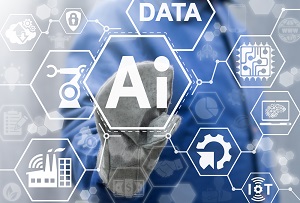Artificial intelligence has already permeated our everyday lives. We see it everywhere, even when we’re not aware of it. From the algorithm that drives our online searches to the app we use on our phones, AI is all around us.
What has it done for the world of investing, and what can we expect in 2023 and beyond?
How Is AI Used in the World of Finance?
Artificial intelligence is already widely used by all kinds of financial regulatory bodies, both on the state and bank level, most notably to detect fraud. It is also used to speed up loan applications and quickly go through a large pile of documents. Financial AI solutions are also capable of making certain intelligent decisions based on the parameters they’ve been given.
Large banking and financial systems are also using AI to improve their customer service efforts, shorten waiting times and help customers solve their problems quickly. This reduces the amount of work human reps have to handle on a daily basis.
How Can AI Be Used in the World of Investing?
The biggest flaw humans have when it comes to investing is that they are not capable of completely separating their emotions from the financial decisions they are making. AI does not have the same problem.
A well-written AI can make decisions based on data and logic, and it will rarely make the wrong choice. That’s unless it has been fed flawed data, of course. But in theory, at least, AI is far superior to humans when it comes to making educated, informed decisions.
The most potent use of AI in investing thus comes down to decision-making. Sure, it can also be used to predict future market trends based on previous ones, and it can even take world affairs and the weather into account. But it will never be flawless, as the stock market is still ruled by human factors to a certain extent.
Is AI Already Widely Used in Investing?
As we enter 2023, AI adoption rates remain slow. We can’t expect it to speed up in the coming years because the cost of adoption is exceptionally high. It requires an investment in new tools, staff training, and a large data set to feed into the AI.
Most investment funds still rely on the lessons their human investors and financial minds have learned either in college or via sheer experience. Blending it with an AI’s input can (and will be) very difficult.
While there are investors who understand the concept of AI and how it is meant to work, they are still a minority, and they will remain one for years to come. However, early adopters can expect to gain a competitive edge, especially if they compile large volumes of useful data.
As it stands now, AI will only be available to those who have the fund to pay for it. Smaller investors will have a harder time adopting it in its earliest stages and can expect to miss out on its benefits for several years to come.
What is the Future of AI in Investing?
It is still difficult to predict exactly how AI is going to impact investing beyond 2023. We can expect a more efficient market to lower volatility over extended periods of time, which are still likely to be interspersed with occasional volatility spikes. After all, we aren’t able to prevent the global crises that cause market volatility.
The main benefits of AI use in the future revolve around the development and validation of reliable models, as well as real-time data processing. AI can do what humans will never be able to do: process large volumes of data practically instantly and make predictions based on reliable sources.
It will still take us several years to get there. The playing field is a small one, so there is still not enough reliable data to go by when it comes to judging the effectiveness AI can have on the global investment market.
At present, we don’t need to rely on AI to make investing decisions. As this calculator for dividends demonstrates, we are still able to create tools that rely on data but not an artificial brain to make reliable predictions for the future.
Wrapping Up
AI will certainly help us make sounder investments one day, but that day has not arrived yet. It will be an expensive and time-consuming endeavor that requires both us and our AI solutions to keep learning and keep discovering new ways to eliminate doubt and guesswork, as well as the plethora of human emotions from the equation.
About the Author

Natasha Lane is a lady of a keyboard with a rich history of working in the IT and digital marketing fields. She is always happy to collaborate with awesome blogs and share her knowledge all around the web. Besides content creating, Natasha is nowadays quite passionate about helping small business to grow strong.
Sign up for the free insideAI News newsletter.
Join us on Twitter: https://twitter.com/InsideBigData1
Join us on LinkedIn: https://www.linkedin.com/company/insidebigdata/
Join us on Facebook: https://www.facebook.com/insideAI NewsNOW





The post is still difficult to predict exactly how AI is going to impact investing beyond 2023. As technologies such as AI continue to grow, they will have a great impact on our quality of life.